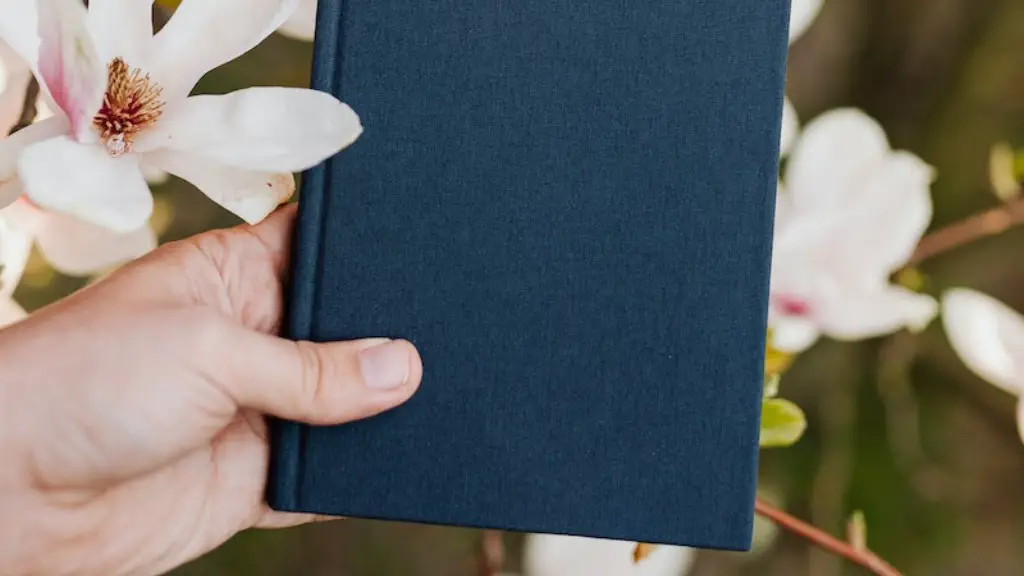Writing poetry is a great way to express yourself and explore the world around you. It can be difficult to put thoughts into words and form them into beautiful, creative pieces of art. Many people feel that writing poetry comes naturally to them, but for those that don’t, it can seem daunting. Fortunately, there are steps you can take to improve your poetry writing skills. It doesn’t matter if you have never written a poem before, everyone has to start somewhere and the following tips can help you.
First, it is essential to have a passion for poetry and come up with an idea or concept for your poem. This will help to give you clarity and focus on what you want to say. Think about what you want to express about yourself, your feelings and perceptions. This can help you to create a strong theme. Once you have your topic, you can use it as a starting point to structure your poem, write it down, and use words that fit the message.
Second, practicing your craft is key to developing your writing skills. This can vary from reading other people’s work to writing your own drafts. Keeping a poet’s journal can be helpful for this, as it allows you to write down your thoughts and feelings without worrying about perfecting the ideas. And there are some great online resources for writing tips and helpful critiques. Taking lessons or workshops can also be beneficial.
Third, understanding your audience is important when it comes to writing poetry. Different audiences can prefer different types of poetry, so knowing who your readers may be is important. Keeping them in mind when crafting your work can help you to develop your poem in a way that they can understand, appreciate and even relate to.
Fourth, it is important to realize that writing is rewriting and that it takes multiple drafts to create a good poem. Don’t be discouraged if your poem isn’t perfect after the first draft. Many good poets have spent years on a piece without being satisfied with the result. Keep editing and polishing your work until it satisfies you and your audience.
Fifth, focus on the sound of your words and how they work together. A poem is like a painting, carefully chosen words can be the brushstrokes that bring the piece to life. Look for the music in your words and learn the basics of prosody, such as rhyme schemes and meter. These can help to make your poem flow better.
Finally, poems don’t have to be too serious. Play around with humor and satire as they can be effective tools for communicating your message in new and interesting ways.
Expand on Topic by Using Imagery, Wordplay and Metaphors
Imagery, wordplay and metaphors can help to provide the reader with a more vivid experience of your poem. Imagery is the use of images, words and phrases that evoke sensory perceptions. Wordplay is the intentional use of words to create a humorous or double meaning effect. Metaphors are comparisons between two unlike things that have something in common, in order to emphasizes certain characteristics or similarities.
These techniques can help to make your poem more interesting and engaging. Imagery and metaphors can also help to bring to life a concept that may have previously been difficult to communicate. Wordplay and humor are great for making your poem, fun and easier to remember.
However, it is important to use them with caution as too much of it can take away from the meaning of your poem. Finding the balance between using imagery, wordplay and metaphors to enrich your poem and not overdoing it is crucial.
Experiment with Different Genres and Forms
When it comes to writing poetry, there are several different genres and forms to choose from. Each one has its own unique style and form that can be used to convey a message in a different way.
For example, a sonnet is a traditional form that consists of fourteen lines, a set rhyme scheme and specific meter. The ballad is a type of narrative poem that can tell a story and it consists of four line stanzas in alternating lines of meter.
Try experimenting with different genres and forms to see what works best for you. You may find that you prefer a certain genre or form over others.
Seek Feedback from Others
Receiving feedback from someone you trust is important when it comes to improving your poetry writing skills. This can include feedback from friends and family, or from fellow poets and experts in the field. Critiques can help to give you an outside perspective of your work, which can help to identify areas for improvement.
Receiving feedback can be tough, but it can also lead to amazing insights that you may not have thought of. It can be a great learning experience and a chance to grow and refine your work.
Read, Read, Read
Reading is essential for any poet. It can help to expand your knowledge and understanding of the craft and introduce you to different genres and forms. Not only that, it can help to increase your vocabulary and give you new ideas and inspirations for your own work. Reading can also help to develop your skills in analyzing, interpreting and commenting on other people’s work.
So, don’t hesitate to read as much as you can. Find books and magazines that contain poetry and read them. If you’re not sure where to start, talk to your local librarian or browse online for new poetry collections.
Keep an Open Mind
When it comes to poetry, there are no right or wrong answers. It is an open forum where you can express yourself freely. So don’t be afraid to try different approaches and experiment with different styles and forms. There is always something new to be explored and it could lead to some unexpected but amazing results.
Sometimes, the best ideas come from taking risks and having the courage to step out of your comfort zone. So don’t be afraid to try new things and most of all, have fun with it.
Network and Connect With Other Poets
Connecting with fellow poets can be a great way to grow as a writer and develop your skills. Finding online communities and groups of like-minded individuals can be helpful. Joining writing groups and participating in open mics can be a great way to get feedback on your work, exchange ideas and grow your skills. It can also help to expand your network and potentially open up opportunities that you may not have considered before.
network with other artists and seek out writing opportunities. Working with other people can often be more inspiring and motivating than working alone. It can also help you to stay focused and productive.
Commit to Writing Regularly and Persevere
Writing daily is one of the best ways to improve your poetry writing skills. This can help to get you in the habit of writing and help to keep you motivated and inspired. Commit to yourself that you will write a certain number of words each day and you will be surprised by the results.
Despite any improvements you may make, writing can be a difficult task. You may find yourself stuck at times and not sure about the direction of your poem. It is important to remember that any writing journey may be full of failures, but each failure can be used as an opportunity to grow and learn from it. And never be afraid to ask for help when you need it.





